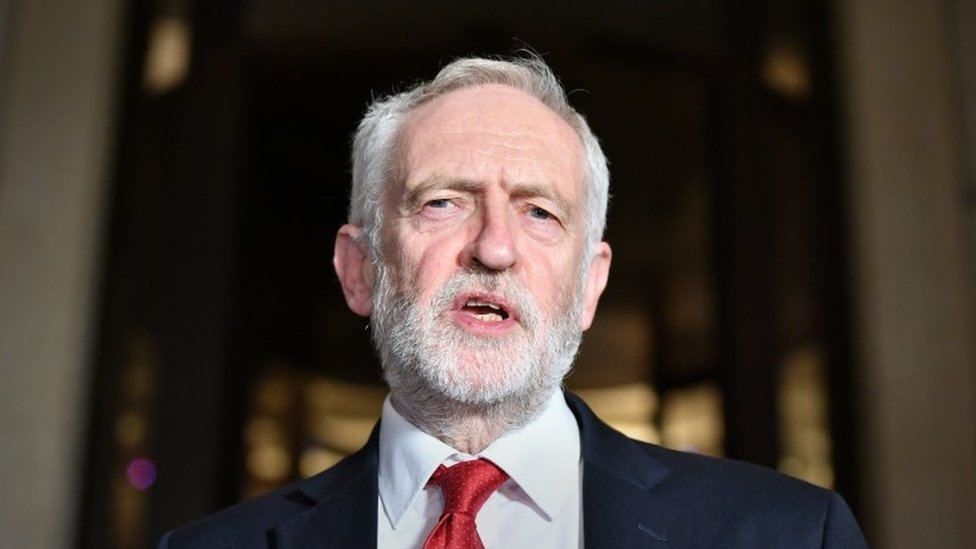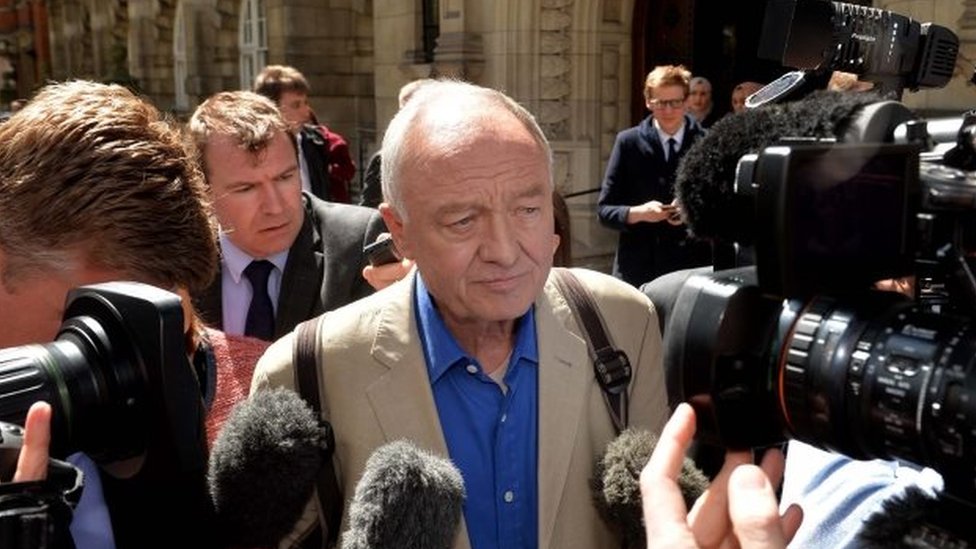Pariahs and Labour's PLP

Jeremy Corbyn and his fans had brief cause for celebration yesterday as news came through that his suspension from the Labour Party had been lifted.
But their joy was short-lived as Keir Starmer announced that he would not be allowing Jezza back into the Parliamentary Labour Party (PLP), although the Labour leader has generously agreed to keep the matter under review.
Apparently, Corbyn's refusal to offer a proper apology for his behaviour over the EHRC report into antisemitism is the reason for his exclusion from the PLP - which means Jeremy is now a pariah in his own party.
Corbyn Suspended (29/10/20)
Jeremy Corbyn has been suspended by the Labour leader Keir Starmer after claiming that claims of antisemitism within the party were wildly exaggerated.
Jeremy Corbyn
"One antisemite is one too many, but the scale of the problem was also dramatically overstated for political reasons by our opponents inside and outside the party, as well as by much of the media."
Not a smart move particularly after the new Labour leader, in responding to the EHRC report, stated publicly:
Keir Starmer
"And if – after all the pain, all the grief, and all the evidence in this report, there are still those who think there’s no problem with anti-semitism in the Labour Party. That it’s all exaggerated, or a factional attack.Then, frankly, you are part of the problem too. And you should be nowhere near the Labour Party either."
Jeremy the Jellyfish (29/10/20)

The Equality and Human Rights Commission (EHRC) has concluded that under Jeremy Corbyn's leadership Labour broke the law over antisemitism.
Now these were not just technical breaches because the EHRC found that the Leader's office - the Leader's office - had adopted a practice of political interference in dealing with complaints.
"The investigation found evidence of 23 instances of 'inappropriate involvement' by Mr Corbyn's office, included staff influencing decisions on suspensions or whether to investigate a claim."
Read the full report below from the BBC.
https://www.bbc.co.uk/news/uk-politics-54730425
Labour broke equalities law over anti-Semitism
A report into allegations of anti-Semitism in Labour found the party was "responsible for unlawful acts of harassment and discrimination".
The Equality and Human Rights Commission identified "serious failings" in the party leadership's attempts to tackle anti-Jewish racism.
The Jewish Labour Movement said the party "cannot hide from the tough decisions needed to put this right".
Labour leader Sir Keir Starmer said it was "a day of shame" for the party.
He promised to implement the EHRC's recommendations "as soon as possible in the New Year" and to "change the culture" of the party.
Labour was plagued by accusations of anti-Semitism from 2016, during the leadership Sir Keir's predecessor, Jeremy Corbyn.
Responding to the report, Mr Corbyn said he was "always determined to eliminate all forms of racism" and "regretted it took longer to deliver that change than it should".
But he claimed his team had "acted to speed up, not hinder the process" and that the scale of anti-Semitism in the party had been "dramatically overstated for political reasons".
Labour now has to publish an action plan within six weeks.
'Toxic'
The EHRC launched its investigation in May last year after receiving a number of complaints from organisations and individuals, including the Jewish Labour Movement.
In its report, the watchdog found the party responsible for three breaches of the Equality Act, namely:
- Political interference in anti-Semitism complaints
- Failure to provide adequate training to those handling anti-Semitism complaints
- Harassment
In a statement, it said: "The equality body's analysis points to a culture within the party which, at best, did not do enough to prevent anti-Semitism and, at worst, could be seen to accept it."
The Jewish Labour Movement said the failures by the party's leadership had "toxic effects" on Jewish members and the community.
A spokesman added: "The blame for this sordid, disgraceful chapter in the Labour Party's history lies firmly with those who held positions of leadership - those who possessed both power and influence to prevent the growth of anti-Jewish racism, but failed to act.
"Never before in our collective history has the Labour Party so fundamentally strained the ties that have bound the Jewish community to the British Left."
'Tip of the iceberg'
The investigation found evidence of 23 instances of "inappropriate involvement" by Mr Corbyn's office, included staff influencing decisions on suspensions or whether to investigate a claim.
Some decisions, said the watchdog, were made because of "likely press interest rather than any formal criteria", and the party "adopted a practice of political interference".
The EHRC said the party's complaints process was inconsistent and lacking in transparency", with the email inbox "largely left unmonitored for a number of years" and "no action taken on the majority of complaints forwarded to it".
The watchdog said there had been recent improvements to the procedures, but the system was still "under-resourced and those responsible for it are not trained to the necessary standard".
The report also said the party was responsible for two cases of unlawful harassment, where anti-Semitic tropes were used and complaints were branded fake or smears.
It named former Mayor of London, Ken Livingstone, and a local councillor, Pam Bromley, but said these were "only the tip of the iceberg", and a further 18 borderline cases were found.
Mr Livingstone later released a statement, he was "deeply hurt" by the accusations and "fully rejects" them, calling himself a "life-long anti-racist".
A joint statement from the Board of Deputies of British Jews, the Jewish Leadership Council and the Community Security Trust, said the report was a "damning verdict", which "disgraces those who attacked us for speaking out against anti-Jewish racism".
They blamed Mr Corbyn, but also "those who deliberately turned a blind eye" to anti-Semitism.
Labour MP Margaret Hodge said it was a "truly appalling day" for the party.
She tweeted: "Under Corbyn's leadership, Labour committed unlawful acts of harassment and political interference. This should never have been allowed to happen and this report must act as a watershed moment."
Culture change
The EHRC said Labour had proved it could "act decisively" when it came to sexual harassment, so anti-Semitism "could have been tackled more effectively".
It called the party to "instil a culture that encourages members to challenge inappropriate behaviour and to report anti-Semitism complaints".
The watchdog concluded its report with a list of recommendations, including setting up an independent complaints process, and ensuring it was audited.
It also said Labour needed to acknowledge the political interference that had already taken place and set out clear guidance to stop it happening again.
Labour has until 10 December to draft an action plan to implement the recommendations - if it fails, it is legally enforceable by a court.



